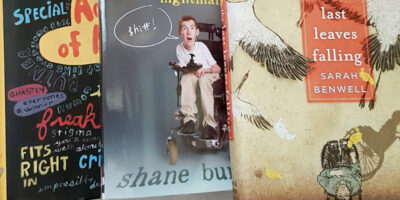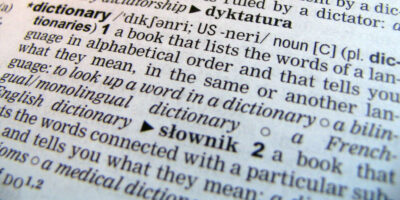-
Filter blog posts
Honor Roll titles
page 1 of 4
» older posts »
May 19, 2017
ASL: Writing a Visual Language
January 20, 2017
On Voice, Autism, and Parrot-Ear
January 6, 2017
Hypermobility and Representation
December 16, 2016
Finding Yourself in a Book: Why I Wrote Blind Spot
July 15, 2016
The State of Disability on Book Covers
July 8, 2016
Introduction to Disability Terminology
June 17, 2016
Past, Present, and Future of my Disability
April 1, 2016
Scoliosis in Books: What’s Missing?
March 27, 2016
(Not) Engaging with Disability: Convenient Approaches in SFF
March 25, 2016
Worldbuilding About, Through, and With Autism
March 19, 2016
Overcompensating: Magical Erasure of Blindness in SFF
March 15, 2016
Disability Metaphors in Sci-Fi and Fantasy
March 4, 2016
Turning Points
January 7, 2016
The Disability in Kidlit guide to ALA Midwinter 2016
December 18, 2015
Autistic Representation and Real-Life Consequences: An In-Depth Look
December 13, 2015
When Blind Is Forever
December 8, 2015
A Semi-Constant Waiting Game
November 6, 2015
Redefining Heroism
May 18, 2015
Depression Has No Straight Lines, Only Lies
April 26, 2015
Happy Endings and Overcoming Autism
April 23, 2015
A Letter to Writers About Autism
page 1 of 4
» older posts »
























